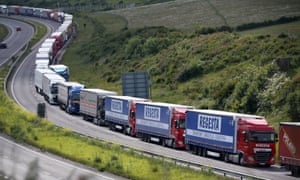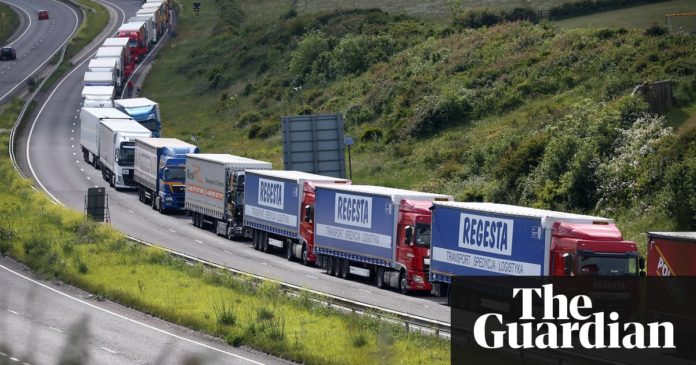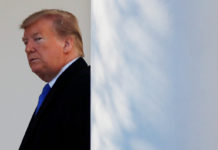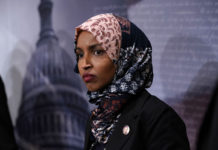
The post-Brexit customs model favoured by Boris Johnson, Liam Fox and Michael Gove could cost business as much as £20bn a year, the head of HMRC has said, a verdict that delivers a huge blow to the Brexiters’ hopes of a complete departure from the customs union. Jon Thompson told the Treasury select committee that their preferred “max-fac” model, which relies on technology and trusted trader schemes to minimise border checks, would be substantially more expensive than the alternative.
Cabinet sources claimed that they had never been briefed by HMRC that the cost could be so high. The huge figure, which represents around double the UK’s annual net contribution to the EU, sent shockwaves around Westminster. Theresa May’s preferred option, the customs partnership model, under which the UK would collect tariffs on behalf of the EU, would be virtually cost-free because businesses could claim back the levies, Thompson said.
The prime minister has faced veiled threats from leading Brexiters including Johnson, Michael Gove and Jacob Rees-Mogg in recent days to drop the partnership model and press ahead with their max-fac option instead.
What is a customs union and why does it matter?
A customs union is an agreement by a group of countries, such as the EU, to all apply the same tariffs on imported goods from the rest of the world and, typically, eliminate them entirely for trade within the group. By doing this, they can help avoid the need for costly and time-consuming customs checks during trade between members of the union. Asian shipping containers arriving at Felixstowe or Rotterdam, for example, need only pass through customs once before their contents head to markets all over Europe. Lorries passing between Dover and Calais avoid delay entirely.
Customs are not the only checks that count – imports are also scrutinised for conformity with trading standards regulations and security and immigration purposes – but they do play an important role in determining how much friction there is at the border. A strict customs regime at Dover or between Northern Ireland and the Republic of Ireland would lead to delays that will be costly for business and disruptive for travellers. Just-in-time supply chains in industries such as car making could suffer. An Irish peace process built around the principle of entirely unfettered travel between north and south could be jeopardised.
Was this helpful?…










